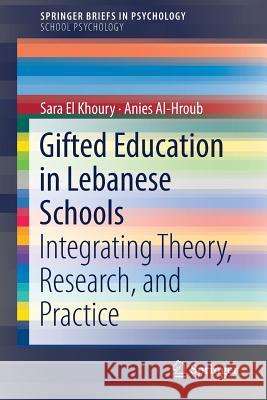Gifted Education in Lebanese Schools: Integrating Theory, Research, and Practice » książka
topmenu
Gifted Education in Lebanese Schools: Integrating Theory, Research, and Practice
ISBN-13: 9783319785912 / Angielski / Miękka / 2018 / 122 str.
Kategorie:
Kategorie BISAC:
Wydawca:
Springer
Seria wydawnicza:
Język:
Angielski
ISBN-13:
9783319785912
Rok wydania:
2018
Wydanie:
2018
Ilość stron:
122
Waga:
2.29 kg
Wymiary:
23.5 x 15.5
Oprawa:
Miękka
Wolumenów:
01
Dodatkowe informacje:
Wydanie ilustrowane











